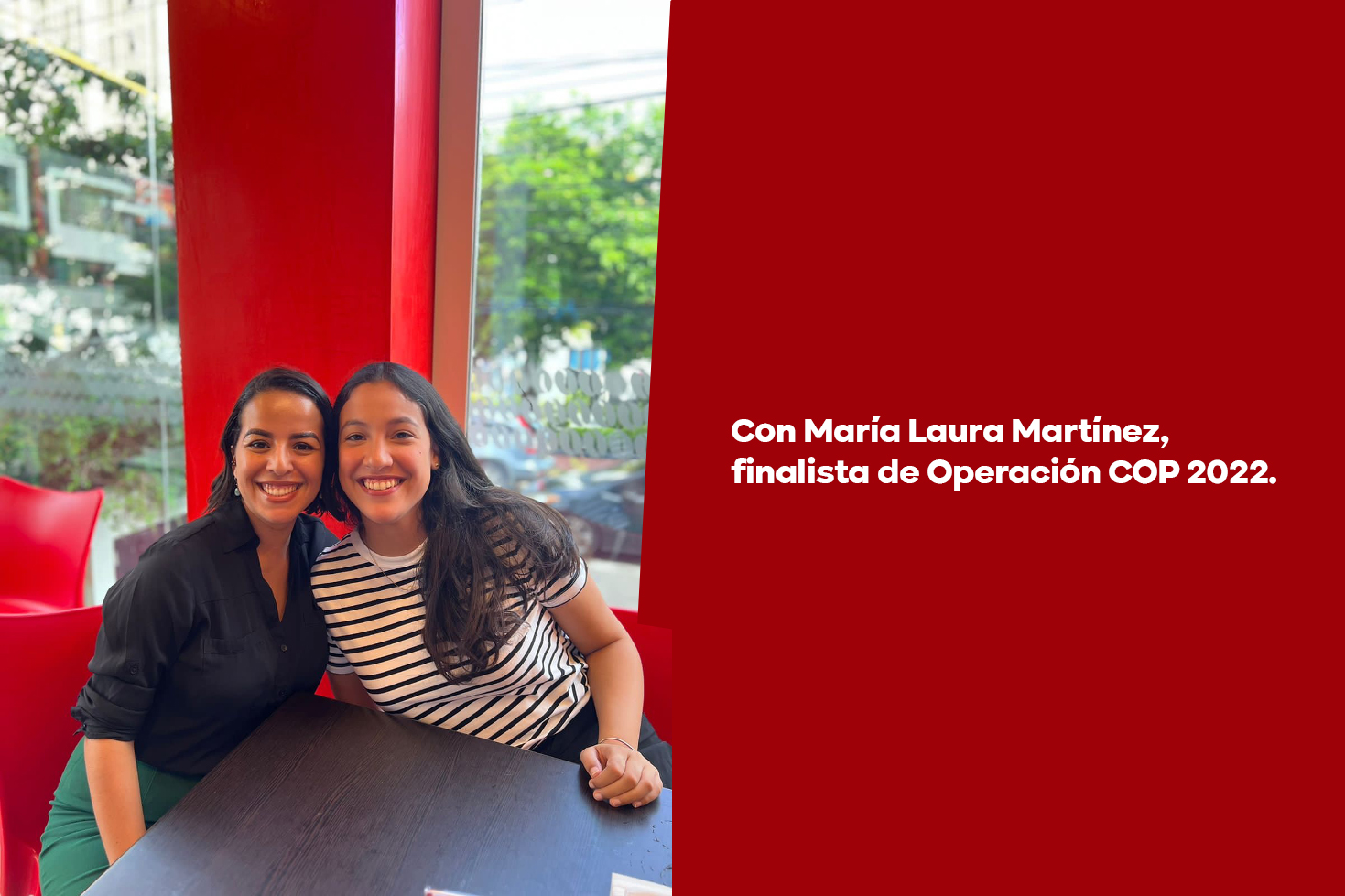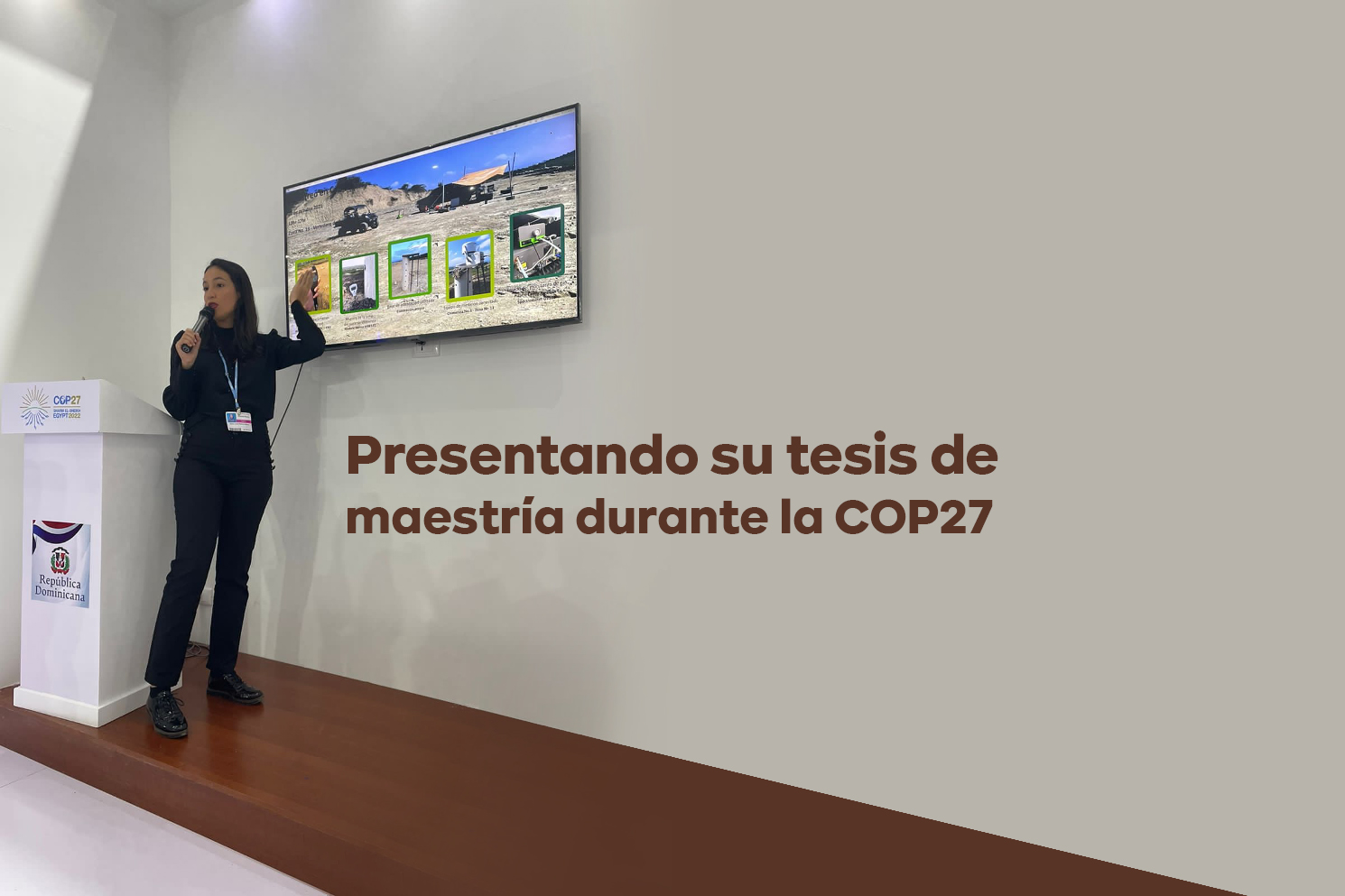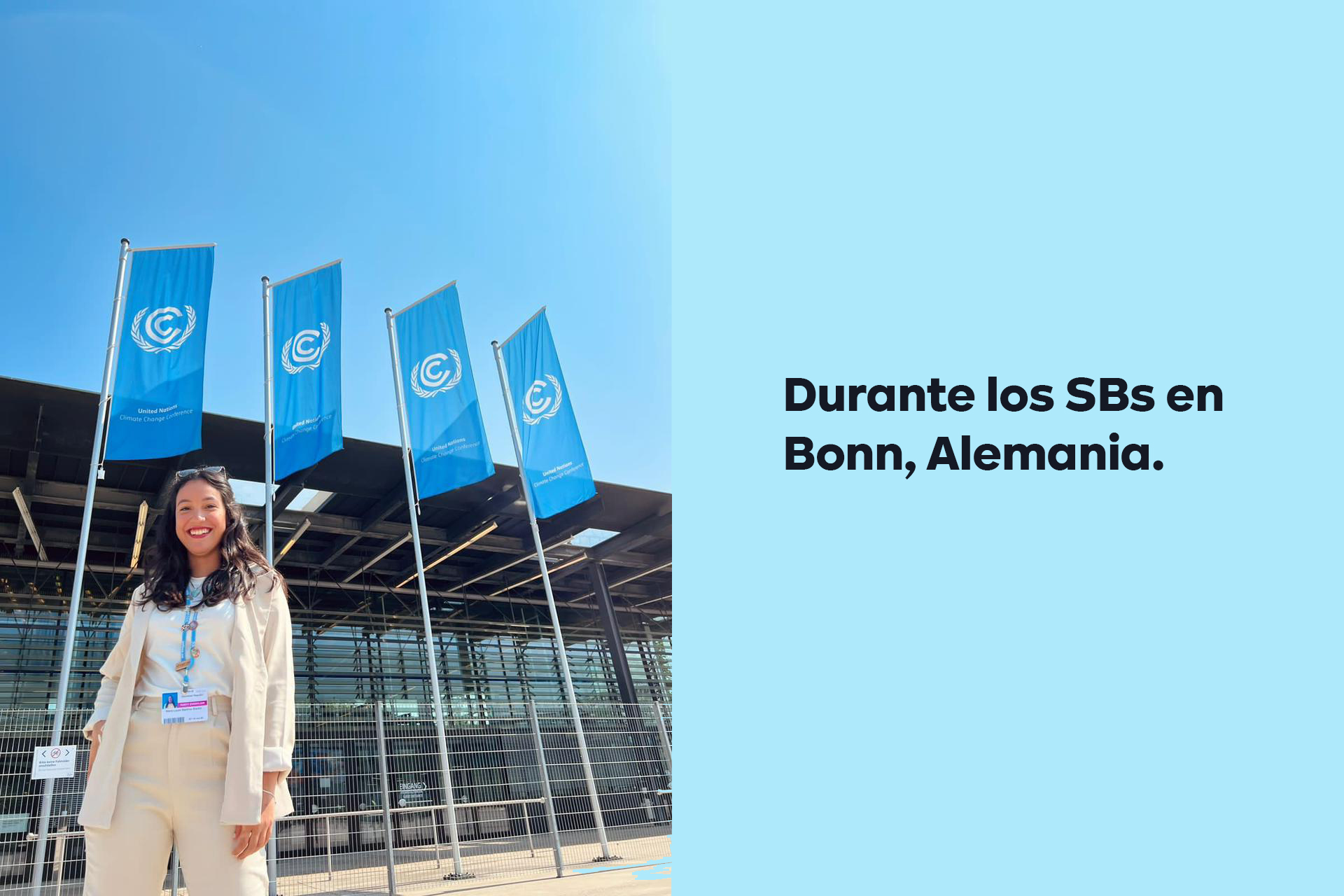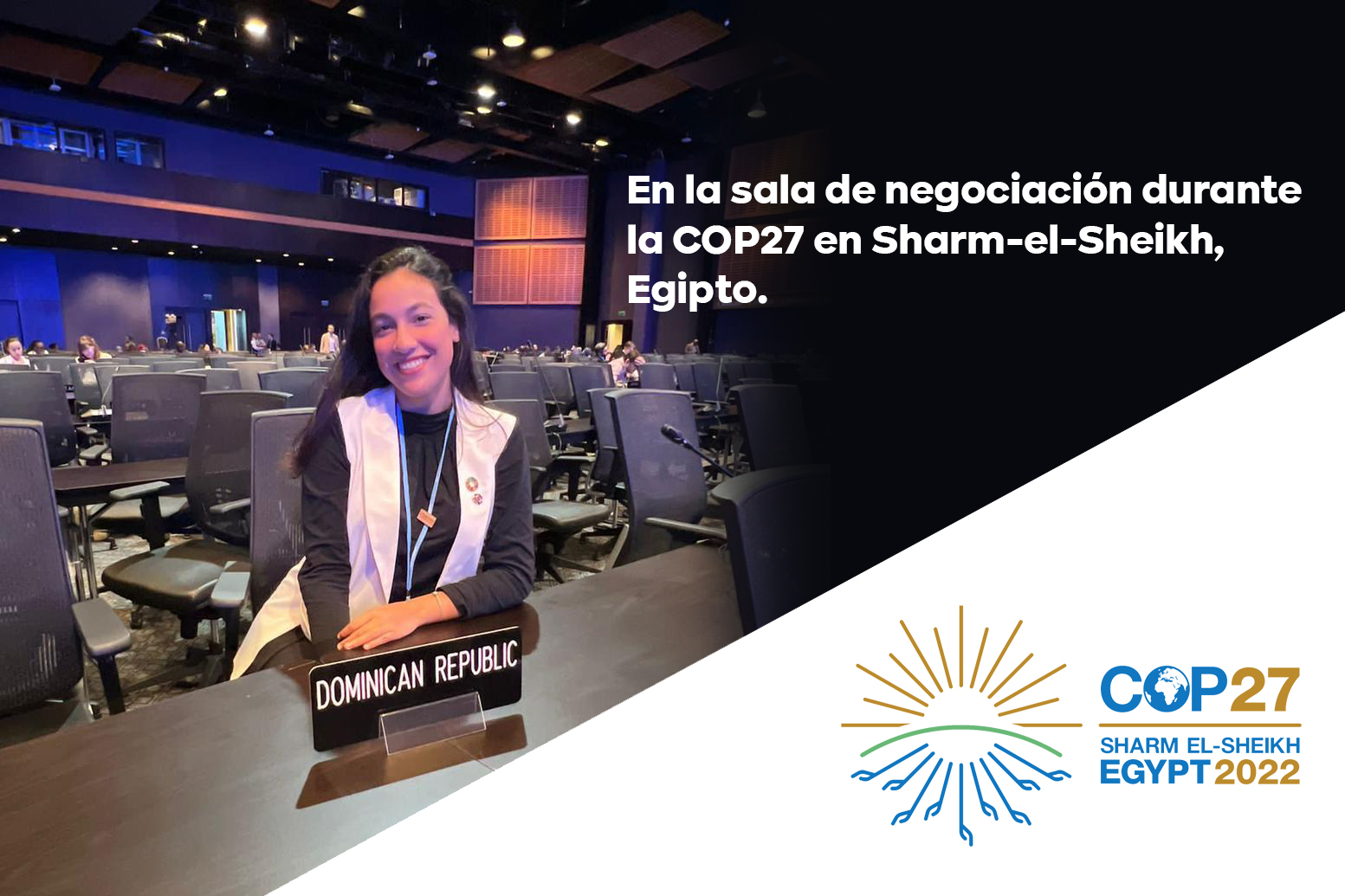Climate justice begins with the hope that we are all capable of taking actionable steps to make our world a more dignified, equitable, and peaceful place to live. Since 2021, The Climate Reality Project (TCRP) has demonstrated exactly what we can achieve if we responsibly involve young people in decision-making spaces. For the past two years, TCRP’s Latin American office has organized Operation COP. Since its inception, this program has trained more than 350 young people from 10 Latin American countries in diplomacy and climate policy. Once the initial training period is completed, interested participants can apply to be part of their country’s official delegations to the COP. In 2022, the Dominican Republic became the first Caribbean nation to join this program, selecting María Laura Martínez and Eusebio Castro to represent the country during COP27 in Egypt.
It is a pleasure to welcome you to the first interview of the segment: Action for Climate Justice in the Dominican Republic , as part of the Program for Journalism and Climate Justice in the Caribbean of Climate Tracker and the Open Society Foundation.

Experience in your first COP and SBs (Subsidiary Bodies)
I started my career in industrial engineering and completed two master’s degrees, one in environmental management and the other in green economy. When I am a finalist for Operation COP, I do so as a junior climate transparency negotiator . I understood where the negotiations were going, how we wanted them to take place for the benefit of the Dominican Republic and all the conflict of interest behind those decisions. The COP changed my life, not only from a professional and personal point of view, but also from a professional point of view, because I changed jobs.
During the Youth and Science event, the delegation gave us the space for young people to participate in parallel events within the Dominican pavilion. There I presented my master’s thesis, which is a scientific study on the behavior of greenhouse gases in a controlled cell at the Rafey landfill in Santiago and its contribution to climate change. I captured data that the country did not have, and that gave us an understanding of where we were in terms of solid waste and its contribution to climate change. At that meeting were my future bosses, who approached me and made a job offer.

Knowledge acquired in the SBs that you would have liked to have at the COP
To explain how I got there, I applied to the Action for Climate Empowerment or ACE program of the UNFCCC (United Nations Framework Convention on Climate Change) and that program consisted of selecting 25 participants from Germany and 25 international participants, within which I was left, the only one from the Caribbean. It was an enriching space because I had worked on transparency for the COP, but I didn’t know more than the basics about ACE. I learned about tools on how to analyze action for climate empowerment at the country and local level.
Since I was already going to be in the SBs, the delegation decided to accredit me. In my free time, I participated in the article six and Climate Transparency negotiations, because I had the experience of COP27. When I entered these negotiations, something that felt very different from the negotiations that take place at the COP was how technical they are . In fact, not all the people who are inside the negotiation room fully understand what is being talked about there, so it is also a capacity-building process that is enabled for the same delegations for the COP. They are slow and bureaucratic processes, due to the fact that decisions are made at the consensus level, which means that everyone must agree for the decision to pass.

Why is climate justice important?
When I entered those negotiation rooms, I saw more representatives from the global north than from the global south , and that’s where we started with the injustices . How is it that the global south, which is scientifically proven to suffer the most from the effects of climate change, is not represented in the negotiations? Second, the negotiators from the global south were not as trained as those from the global north, and by training I do not mean academic preparation, but rather due to the lack of data that exists in the global south, it is more difficult for us to understand our climate behavior. in relation to the global north, which has more years of data collection and more technology to capture it.
Added to this is how difficult it is for young people to reach these spaces, since we have to appeal to international financing instead of going directly to the environmental authorities, because we do not have the budget. That also goes hand in hand with how difficult it is to get a visa, coming from a developing country to a developed country. I also did not see representatives from Haiti. In the end, we have to advocate for the entire island because the environment knows no barrier, but. Why does it have to come to that checkmate if the other country also has its voice? I give the example of the Dominican Republic and Haiti, but that can happen with many other countries: that the decision has to be made by a neighboring country in some process, because it simply does not have the resources or the opportunity to bring a delegate.
Discussions on loss and damage in COP and SBs
I did not participate in the loss and damage negotiations, but what was discussed in Sharm el Sheikh about the Loss and Damage Fund was followed up, because it would be creating the technical structure for that fund to reach where it should go. In the end, small victories are achieved, but the battle of achieving the functional and systematic structure to channel that fund is not won.
Small victories in the SBs
One of the topics that made me most happy was blue carbon, which is the carbon that is reduced in marine or coastal ecosystems. Countries are realizing the importance they have in combating climate change and that they are large carbon sinks. This topic is going to be incorporated into the upcoming NDCs of countries like Indonesia, which has 76% of the world’s blue carbon areas.
What does that leave us as a task? We have the red mangrove, which is an endemic species that captures carbon up to 30% more than other types of trees. We have to incorporate it in our next NDC, because it will not only position us as leaders in blue carbon in the Caribbean, but as leaders in the fight against climate change. We will conserve those ecosystems that help us so much to prevent the losses and damages suffered by storms and hurricanes.
Topics that you covered in the SBs that you did not cover in the COP
ACE was a new topic for me. Technical tools came from ACE that can be applied not only at the government level, but also at the personal level or even in the private sector. Working on a topic that I had not touched on during the COP gave me a larger vision of what climate action is and how it can be measured.
Within ACE, there are indicators and surveys. Indicators are numerical data that show how climate empowerment action plans are being monitored and improved in a country. You can create indicators and a monitoring plan based on it, which gives you a more holistic view of how the country is engaging in that action for climate empowerment. There are also surveys, which are to find out public opinion about a topic related to climate action, letting you know the level of awareness that the population has, in this case, the entire Dominican Republic.
How Operation COP Made You a Better Climate Justice Advocate
I already had training in this area from my master’s degree in Environmental Management focused on climate change, but I did not know the different veins of action that can exist in climate diplomacy and that was given to me by Operation COP. For two months we received virtual training of more than two or three hours, and within these trainings, we were able to interact directly with climate negotiators from previous COPs. They explained to us at the negotiation level those topics that we understood at an academic or technical level. This gave me a more transversal perspective, because at that time I did not understand how climate change affected, for example, gender. I felt that it helped me a lot to understand climate change from a not only environmental perspective, but also a social, cultural, political and human rights perspective.
Importance of the Dominican Republic being the only Caribbean country in Operation COP
The country has prepared itself for programs like this to pay attention to us, because great work has been done to position us as an emerging leader against the climate fight. This makes us understand that we must help other neighboring countries get involved . We can share that knowledge with others who have economies and difficulties similar to ours, and be mentors to countries in the region that need it.

Youth participation in climate spaces post-Operation COP 2022
I feel that for this second call, more young people trusted the process. After the launch, a lot of people approached me about how they could get involved. They even asked me: “And you think I’m good enough to do something like that?” And I told them: “Look, just by asking me, you measure up, because they train you.” It’s simply the desire, not staying silent and getting involved.
Closing Message
It is very inspiring to know that there are spaces where a person, without having been historically affiliated with politics, can have the opportunity to represent their country in a forceful way. This interview showed us how essential it is to capture data, especially to identify patterns and potential lines of action, in addition to what climate justice represents in the context of meaningful youth participation.
This story was published on Revistatinglar.com with the support of the Caribbean Climate Justice Journalism Fellowship, which is a joint venture between Climate Tracker and Open Society Foundations.